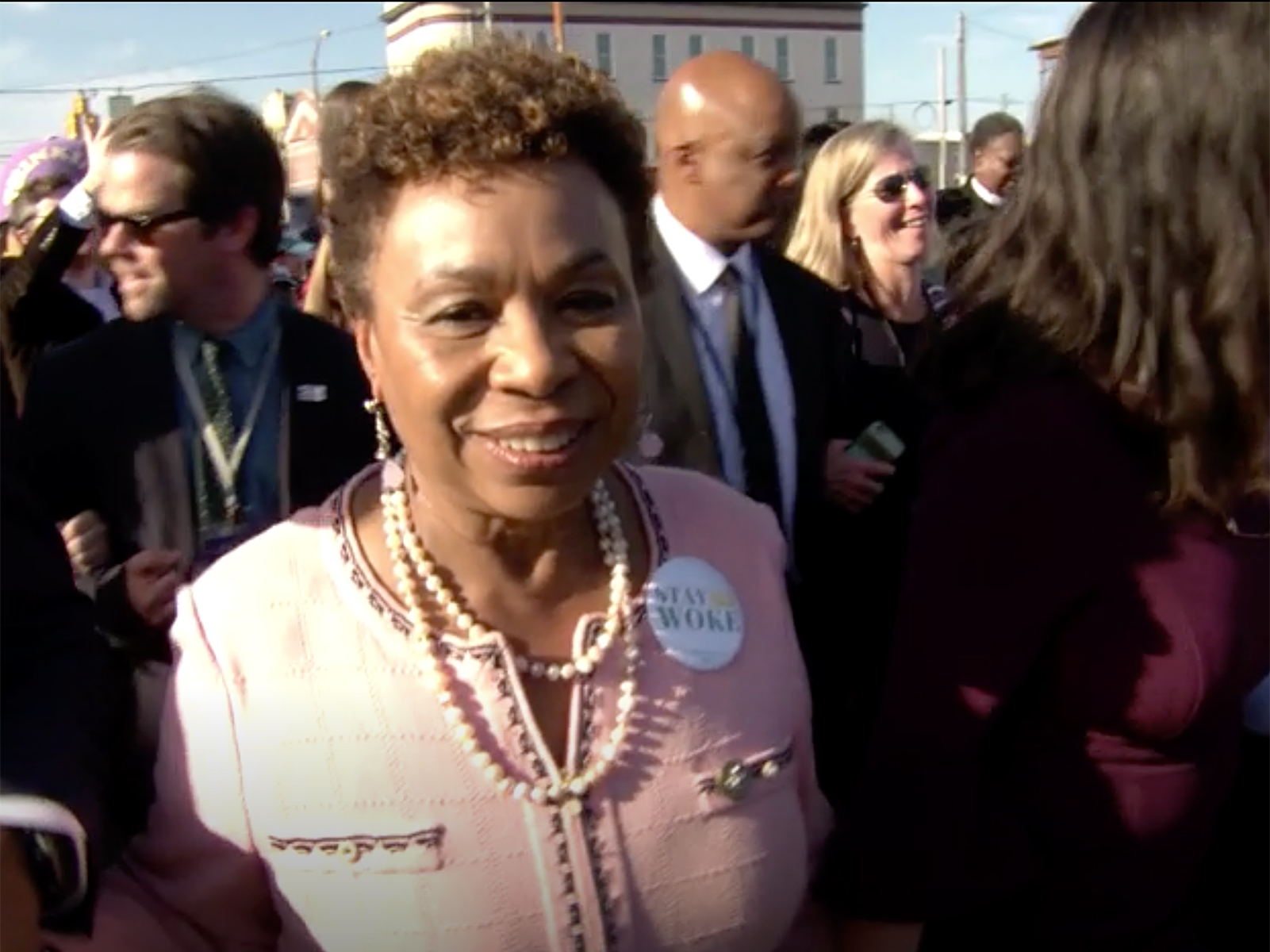
- Film
Docs: Barbara Lee: Speaking Truth to Power
An easygoing and consistently engaging if somewhat staidly told documentary biopic, Barbara Lee: Speaking Truth to Power benefits from both the considerable charisma and ongoing relevance of its subject, and the important lessons to be drawn from her fight for positive societal change. With interviewees including Alice Walker, Alexandria Ocasio-Cortez, Cory Booker, Van Jones, Danny Glover, and the late John Lewis, among others, director Abby Ginzberg’s movie, receiving a nationwide theatrical release alongside digital distribution on iTunes, Apple TV and Amazon Prime Video, shines a light on the 12-term Congresswoman, and how her personal experiences connect to her public service.
Lee’s position as the lone voice in opposition to the authorization of unlimited military force after the September 11, 2001 terrorist attacks – an overly broad resolution which granted President George Bush unchecked war powers and has subsequently been invoked 41 times by three American presidents – feels especially timely at this moment, with America’s 20-year, $2.3 trillion involvement in Afghanistan coming to a chaotic close. And it’s here that Speaking Truth to Power begins. This “profile in courage” is lauded by colleagues who lament not standing with her, and the movie also delves into the fallout (Lee and her family received threats on their safety) and her years-long effort to repeal the law.
Much of Lee’s personal brand, though, is tied to her reputation as an uncompromising advocate for progressive policies which put working people, and especially the poor, first. And her status as a pioneer in the struggle for economic and racial justice has deep roots. In the movie, Lee recounts her work on the national campaign of New York Congresswoman Shirley Chisholm, the first African American candidate to run for a major party’s nomination for President of the United States. After that, Lee found a valuable mentor in Congressman Ron Dellums, rising up the ranks in his office from intern to Chief of Staff. Though she, for a long time, thought of herself as only a behind-the-scenes operator, Lee was eventually pushed to stand for election herself, and several years in the California State Assembly and State Senate would prepare her for her own Congressional service.
The Peabody Award-winning Ginzberg, who for two decades has been examining issues of discrimination and their intersection with the law, selects a subject who can give a passionate and informed voice to those same topics. While the willful participation of Lee herself sometimes means the movie at least flirts with hagiography, Ginzberg for the most part manages to strike a savvy balance between Lee’s own recollections and the contributions of other interviewees.
The most interesting, successful, and lastingly memorable thing about Speaking Truth to Power is the forthright manner in which it connects personal biography and government policy – showcasing the ramifications of systems either corrupt or assistive and how budget allocations are indeed a type of moral document. Lee was born in El Paso, Texas, to a military father and homemaker mother who almost died during childbirth because she was turned away from a hospital since she was African American. When Lee was 15 years old, and desperately wanted to be a cheerleader at her high school, but found herself blocked by segregation policies, she enlisted the NAACP’s assistance in a lawsuit to secure an open tryout before the entire student body. Later, as a single mother supporting two children on food stamps, a special Housing and Urban Development government program would help her to purchase a home for $19,000 that allowed her to be close enough to attend school at Mills College. Lee’s candor about these and other difficult aspects of her life, both in interview clips and older footage of speeches in committees and on the House floor, helps to strongly illustrate the government’s impact on upward mobility.
Lee’s own embrace of strategic compromise notwithstanding (one portion of the movie chronicles her involvement in tackling AIDS crisis funding for Africa during the unpopular Bush administration), the political reality of her situation currently mirrors that of many elected representatives in the United States: Only partially acknowledged by the movie is the fact that Lee’s adherence to her principles is afforded much sturdier footing by way of the protection of her Northern California district, which tilts so liberal as to be non-competitive in general elections. It is a fact which remains crucial to understanding some of the current stasis in the American system of governance – its inability to meaningfully confront significant problems in a proactive manner.
This aspect may be less interesting especially to international viewers, or those not overly interested in politics. And it’s undeniable that the main thrust of the film, the intersection of Lee’s personal story with her political education and unswerving moral compass, stills connect robustly.
This slight, nagging demerit notwithstanding, Speaking Truth to Power still lands as an emotionally fortifying portrait of an open-minded warrior for change. Lee’s story is an affirmation that people closest to some sort of pain or struggle in their own lives should ultimately also be closer to power and helping shape policy.

